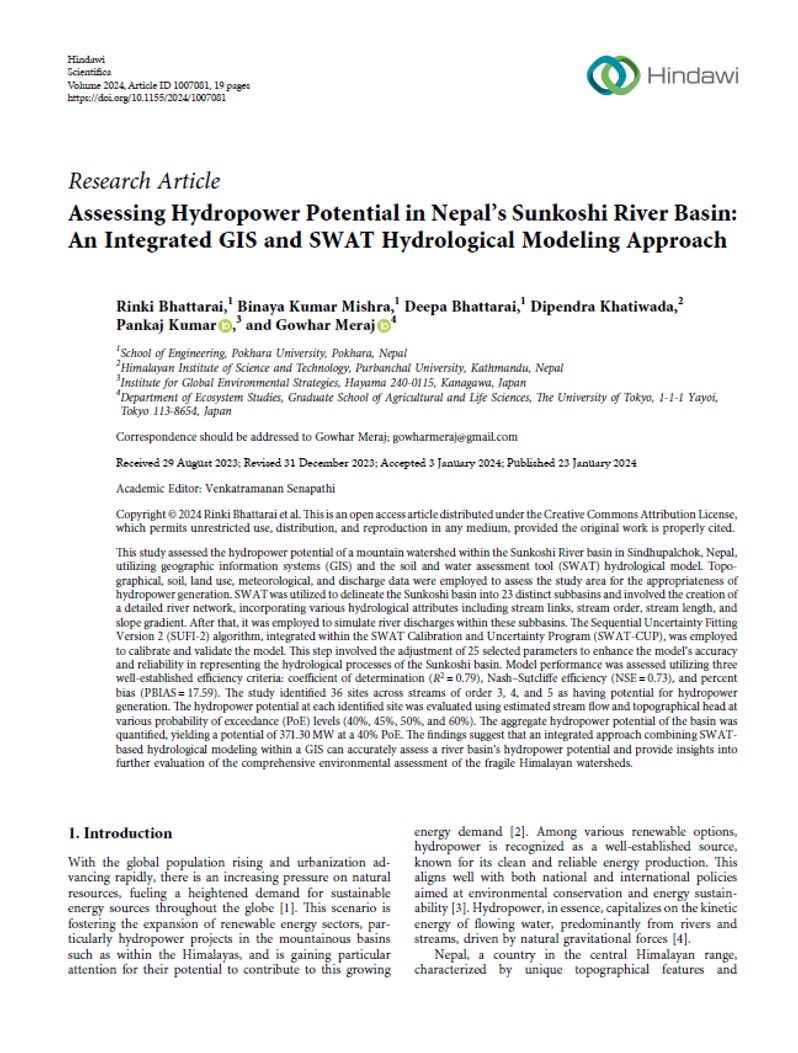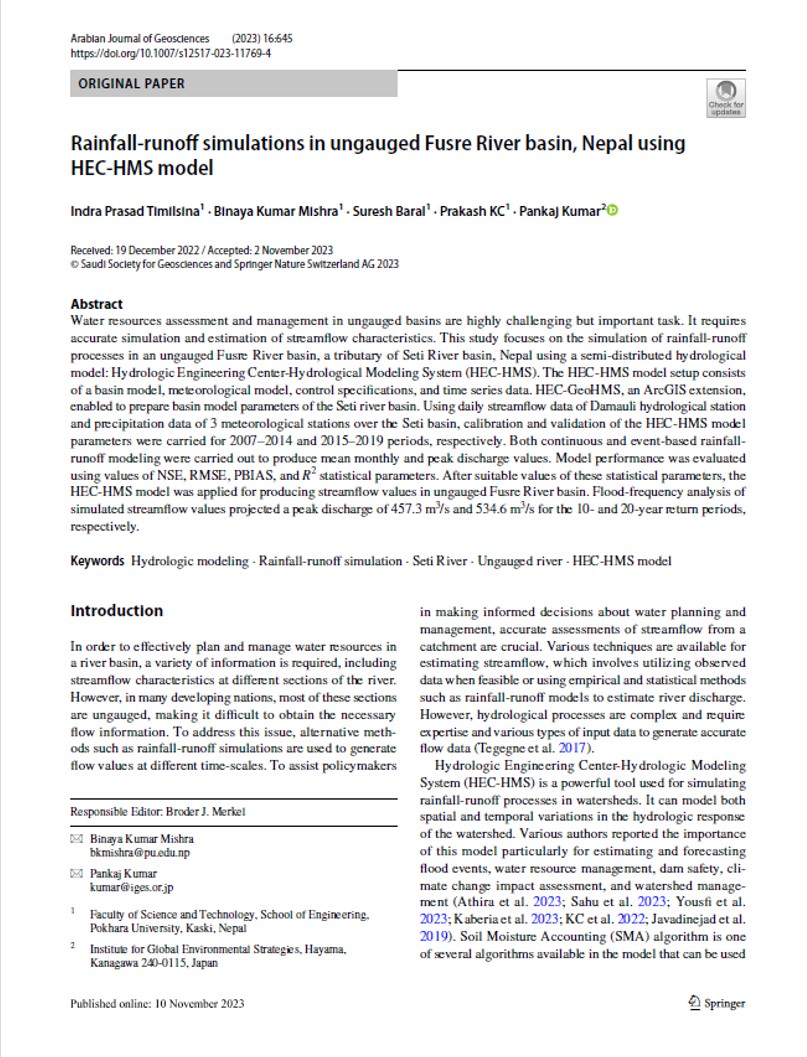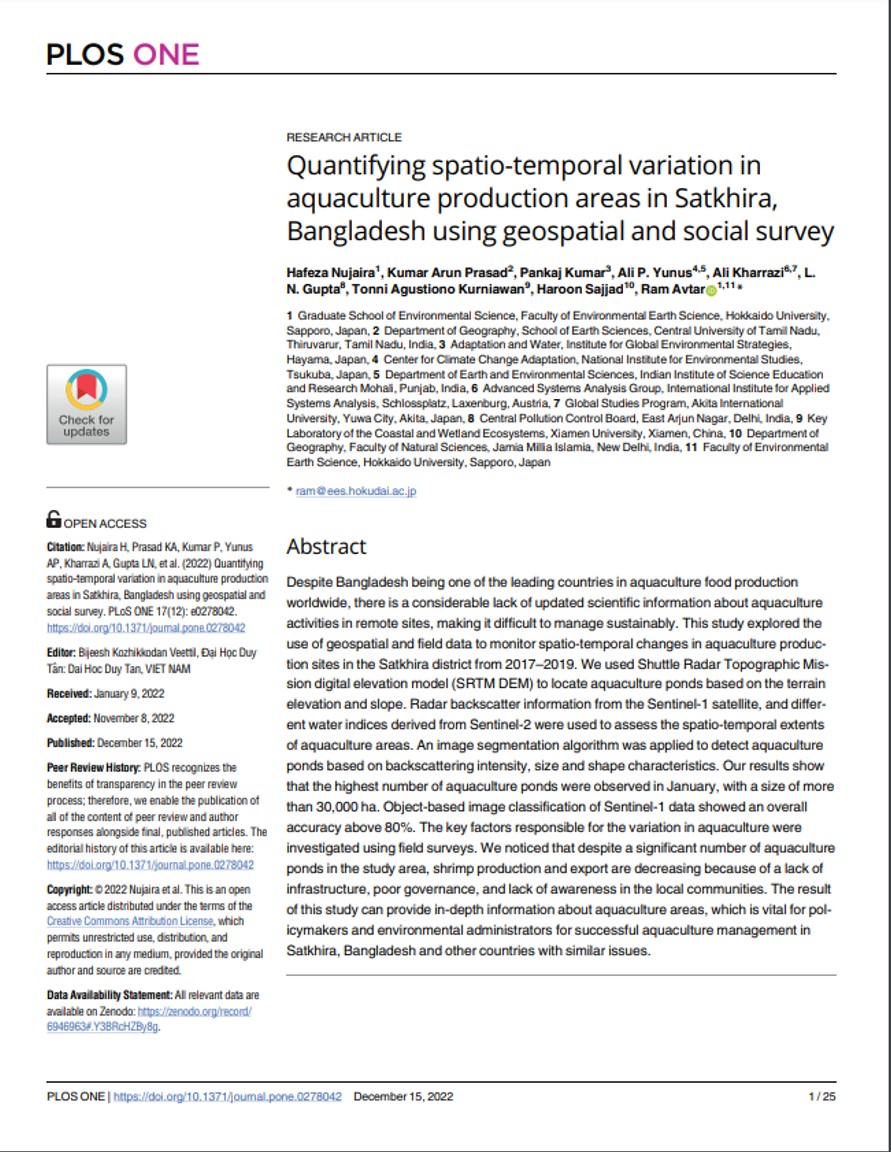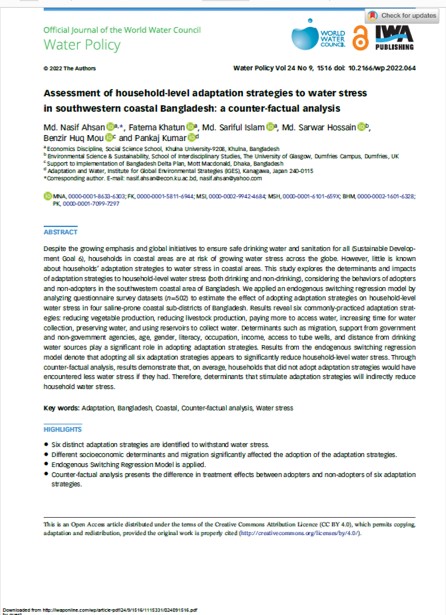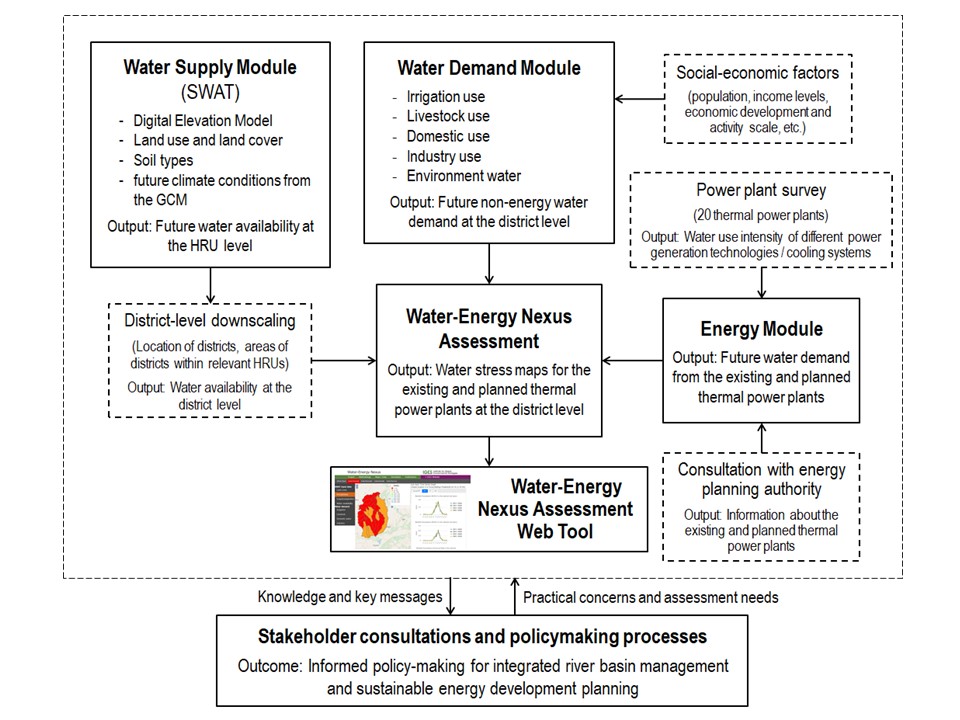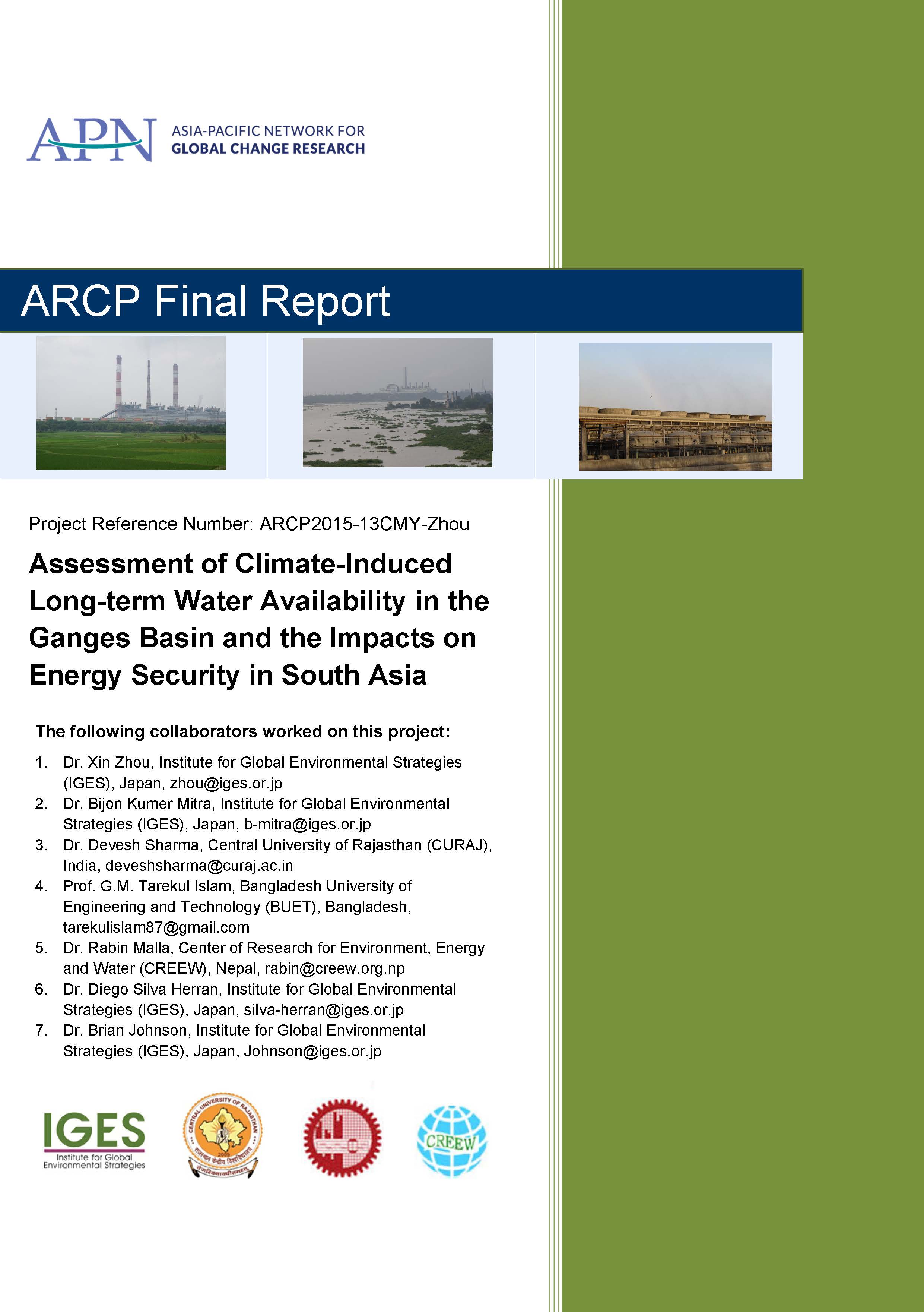In Scientifica
This study assessed the hydropower potential of a mountain watershed within the Sunkoshi River basin in Sindupalchok, Nepal, utilizing Geographic Information Systems (GIS) and the Soil and Water Assessment Tool (SWAT) hydrological model. Topographical, soil and land use, meteorological, and discharge data were employed to characterize the study...

